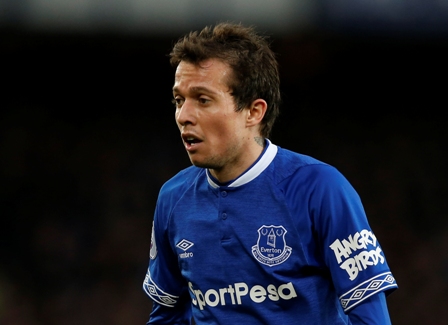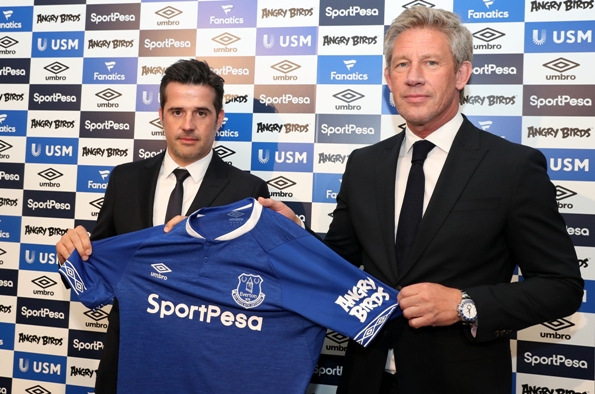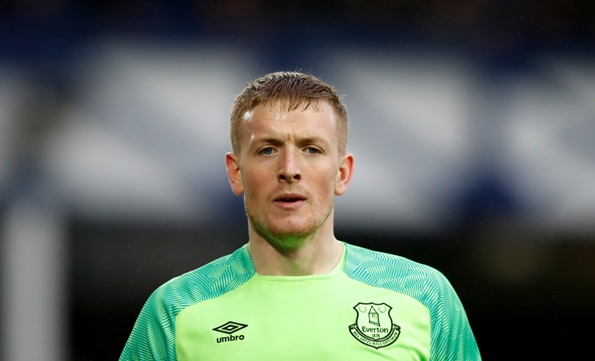Everton have made significant changes to its boardroom structure following the departure of CEO, Robert Elstone. fcbusiness speaks to new CEO, Prof Denise Barrett-Baxendale about her new role and the changes being made across the business and football sides of the Merseyside club.
On joining Everton in the Community as CEO in January 2010, initially to develop and lead a transformation strategy, did you ever imagine that one day this would lead to you becoming CEO of the football club?
To be honest, this was not something I gave any consideration to when I first came to Everton. At the time, as you say, I was fully focused on delivering a transformation strategy for Everton in the Community. Within 18 months or so, I was appointed to the role of chief operating officer at Everton before being promoted to deputy chief executive officer in June 2013, while simultaneously continuing to lead our official charity.
Naturally, as a very proud and lifelong Evertonian, I was humbled and grateful for the support of the chairman, Bill Kenwright, my fellow Board of Directors and Mr (Farhad) Moshiri in deciding to invest this responsibility in me to help shape Everton as a club. It’s a great honour to be entrusted with the role of chief executive.
This is a great club, the fourth most successful club in the history of the game in this country, footballing royalty and we have the best, most committed fans. I can assure every single Evertonian that I am completely committed to driving our club forward and making the most of the opportunities that we have. I am also tremendously excited by the prospect of being in a position to set a path forward that will underline our ambitions for the future, reflect our values as The People’s Club and always maintain the motto set out for us by our forefathers Nil Satis Nisi Optimum. Nothing but the best is good enough.
Your appointment was made amid a reorganisation of the club’s Board following the departure of your predecessor, Robert Elstone, to Super League. Could you elaborate on some of the change that has taken place?
There was a lot of work to do at the club this summer. Change can be disruptive, especially when our traditions speak of solid structure, long-serving managers and a club that commits to the long-term. But change also brings opportunity and the circumstances to determine afresh who we want to be and how we want to deliver.
As a Board, we were keen to ensure that the new leadership structure would present us with clear lines of responsibility and accountability while also providing us with a strong platform from which we can continue to move forward. Dr Keith Harris has been appointed deputy chairman and he will be the Board member responsible for driving the club’s new stadium project forward, an area in which he has vast experience from his time as director of Wembley National Stadium Limited. The opportunity we have at Bramley-Moore Dock is potentially one of the most significant in the club’s history and, through Keith’s experience with Wembley, he understands both the opportunities and the complexities in delivering a new stadium.
Alexander (Sasha) Ryazantsev has also joined the executive leadership team, with responsibility for the club’s financial and commercial performance. Sasha has been a member of the Board of Directors since March 2016 and has mainly focused on relationships with creditors and investors, most notably being responsible for attracting our £60m Revolving Credit Facility from ICBC, the world’s largest bank by assets. Sasha will be instrumental in ensuring we make the most of the opportunities we have, including growing our commercial revenues and delivering a new stadium, while ensuring we run the business in a sustainable way.
As a club it is imperative we move forward and grow and it is key that we have the right personnel to deliver that plan. I have also put in place a new leadership team that comprises of nine executive director level-positions and will be responsible for the day-to-day operations across the club, supporting the Board of Directors and new director of football Marcel Brands to achieve our long-term ambitions on and off the field.
 |
What are your roles and responsibilities as CEO?
In the broadest sense, my role as CEO is to provide leadership, strategy and direction, making sure we are clear on who we are, where we are going and what resources we need to be successful as a football club both on and off the pitch.
As well as winning trophies and admiration for our football, Evertonians want to be proud of their club. We need to make sure all of the changes and decisions are being made in the ‘Everton way’ and will be delivered by a team who will deliver in the ‘Everton way’.
Since taking up this role I’ve been spending a lot of time at the training ground, working closely with our new manager, Marco Silva, and our new director of football, Marcel Brands, and it is essential that I do that so we can firmly embed the structure around how we want to work going forward. It’s important that the three of us are aligned and we have the same common purpose, which is to win football matches, be successful and be the best club. It’s my job to support Marcel, Marco and the rest of our staff in the ways I can to give us the best possible chance of delivering the success our fans crave.
With all the changes, will there be a change of direction for the club?
We are focused very much on how we can fully realise our ambitions as a club, with the fantastic fanbase we have and a natural, innate aversion to settling for anything but the best. Football has changed massively since I joined Everton eight years ago. Revenues have increased and clubs are huge, complex organisations, particularly at the top end of the Premier League, so to be competitive we must continue to grow and evolve. The key to us being able to achieve this is to continue to maximise our potential income through growing our partnerships portfolio and grasp the opportunity to move to a new stadium at Bramley-Moore Dock. Both, in turn, will support our ambitions on the pitch.
 |
Over the past 18 months we have grown our commercial partnership portfolio by signing a record main partnership deal with SportPesa, acquiring an innovative shirt sleeve partner in Angry Birds and adding partners with a global audience to our partner portfolio. Our work in activating our partnerships have won global awards and we want to continue to deliver value for money for our partners. It is our aim to build a long-term sustainable club partnership portfolio by attracting partners in sectors where we are currently not involved. For example, in the airlines sector, tourism or automotive as well as being proactive in any emerging sectors.
The opportunity to move to a new stadium at Bramley-Moore Dock has been described as a ‘game changer’ not just for the club but for the city. We all love Goodison Park, it’s the most magical place to watch football, but we understand that to be a modern, progressive football club we need the facilities and resources to take us to the next level, and the reality is we cannot satisfy those needs at Goodison Park in the long-term. That’s why the new stadium project is central and so important in terms of our vision for the future.
On the pitch there has been the appointment of Marco Silva along with several strategic appointments within football operations. Can you explain the reasoning behind these changes and how you hope they’ll translate to further progress on the pitch?
Chief among my priorities is to structure and resource our club to fully achieve our ambitions on and off the pitch. We must therefore attract the very best talent to Everton and I believe we have done that by bringing Marcel Brands as well as Marco Silva to the football club.
 |
In Marcel, we have appointed a director of football with a proven reputation for developing players and building clubs in technical roles over two decades in Holland. In Marco, we have a modern, forward-thinking coach with Premier League experience who has a record for getting the best out of players. His philosophy fits perfectly with our long-term strategy and we are looking forward to seeing what can be achieved as he works closely with Marcel.
To support our manager and director of football, we’ve also appointed a new head of football strategy in Richard Battle. Richard was previously part of our successful Academy and will work closely with Marcel to develop a wider football strategy for the club, further strengthening the links between the first-team, the Under 23s and the Academy. Together with Marcel, Richard will be looking at what it means to be an Everton player so when a young player comes through the Academy, there is a clear pathway integrated into that wider football strategy.
Joel Waldron has also stepped up to the role of Academy director to oversee the Academy operations at USM Finch Farm in an expanded role from his previous position of Academy manager. It’s important, too, the fact that Marcel, Marco and myself have exceptional relationships and it does rely on that triangulated leadership, the three of us wanting to be the best we can be. They have been terrific in terms of how they have become part of our football club and there’s a lot of opportunity for myself and my senior team to embed them in further.
Our common purpose is about being the best we can be and the execution of excellence in performance. That we have made a solid start to our campaign – underpinned by a fast-paced, dynamic style of play, passion and a strong work ethic, team spirit, a commitment to winning and to the development of our young players – is really encouraging.
Everton had three players at this year’s World Cup including Jordan Pickford and Gylfi Sigurdsson. Do you see their presence as a boost for the club? And how important is it you develop/attract players of world class calibre to the club?
If we are to fully achieve our ambitions, we must continue to attract the very best talent to Everton, whether that’s top-class players such as Gylfi Sigurdsson, Jordan Pickford and Idrissa Gana Gueye, who represented their countries with great distinction at this summer’s World Cup in Russia or the very best backroom and Academy support staff to help bring through the next generation.
 |
That’s why we were so excited to secure the services of Marcel, who has a proven track record of unearthing talent and developing players. During his eight years at PSV Eindhoven, he overhauled the club’s transfer strategy and rejuvenated its Academy, helping to build one of the youngest teams ever to win Holland’s Eredivisie. Both Marcel and Marco have placed a key emphasis on the development of young talent.
Everton is renowned for its world-class Academy and Marcel and Marco have a shared vision to utilise our productive and respected youth system as a vital component of their strategy. But, of course, it was fantastic to see Gylfi, Jordan and Idrissa performing so well at the World Cup and, in particular, to see the heroics of our goalkeeper, now firmly established as England’s No. 1. This in itself speaks of where we see ourselves and wish to position ourselves as a club.




